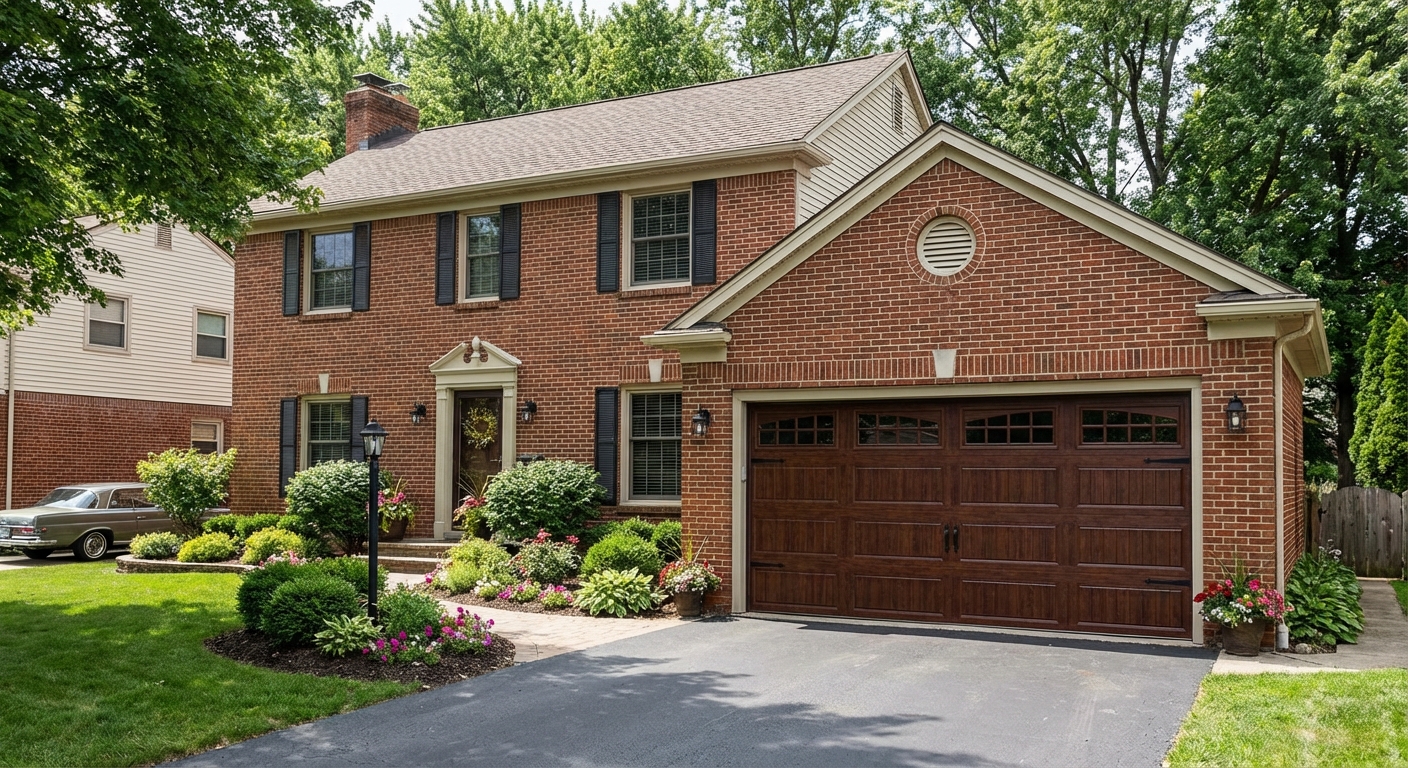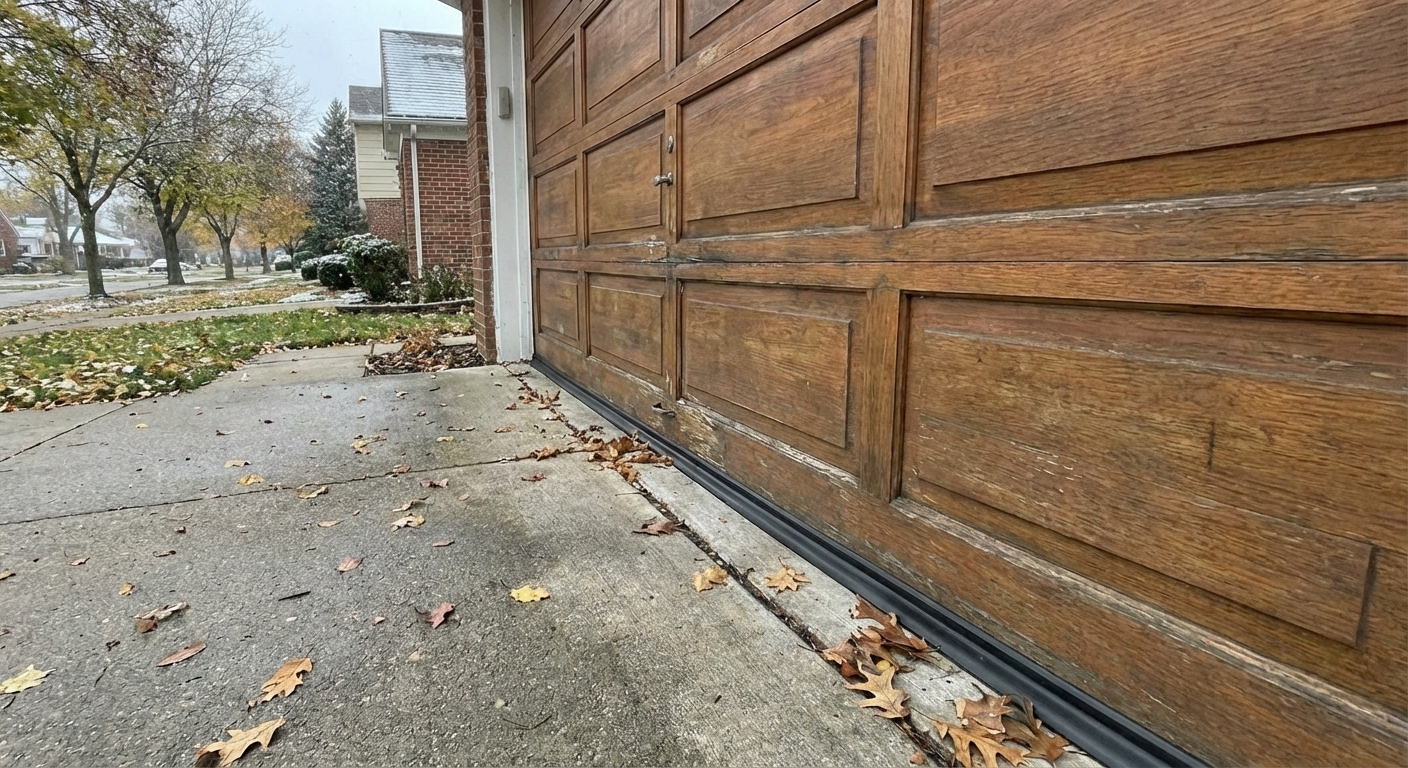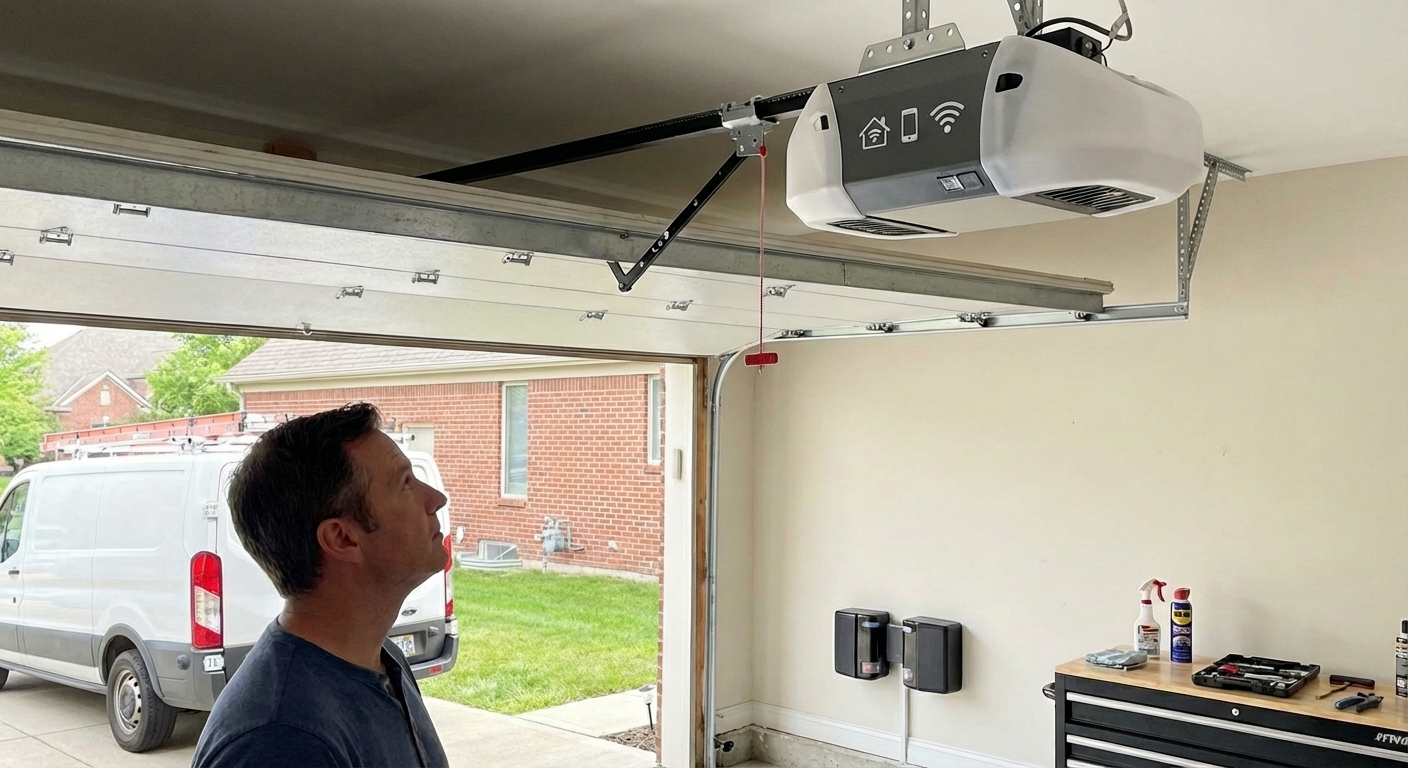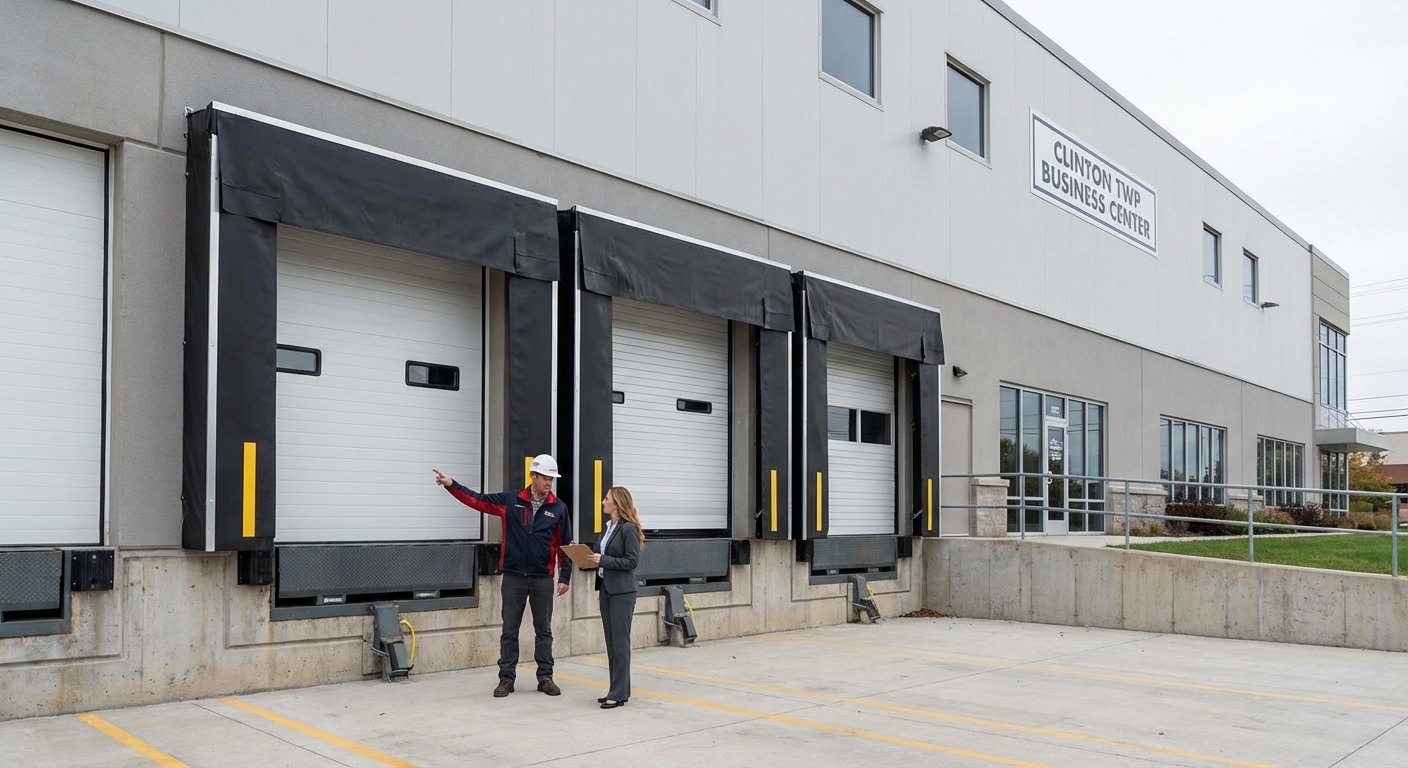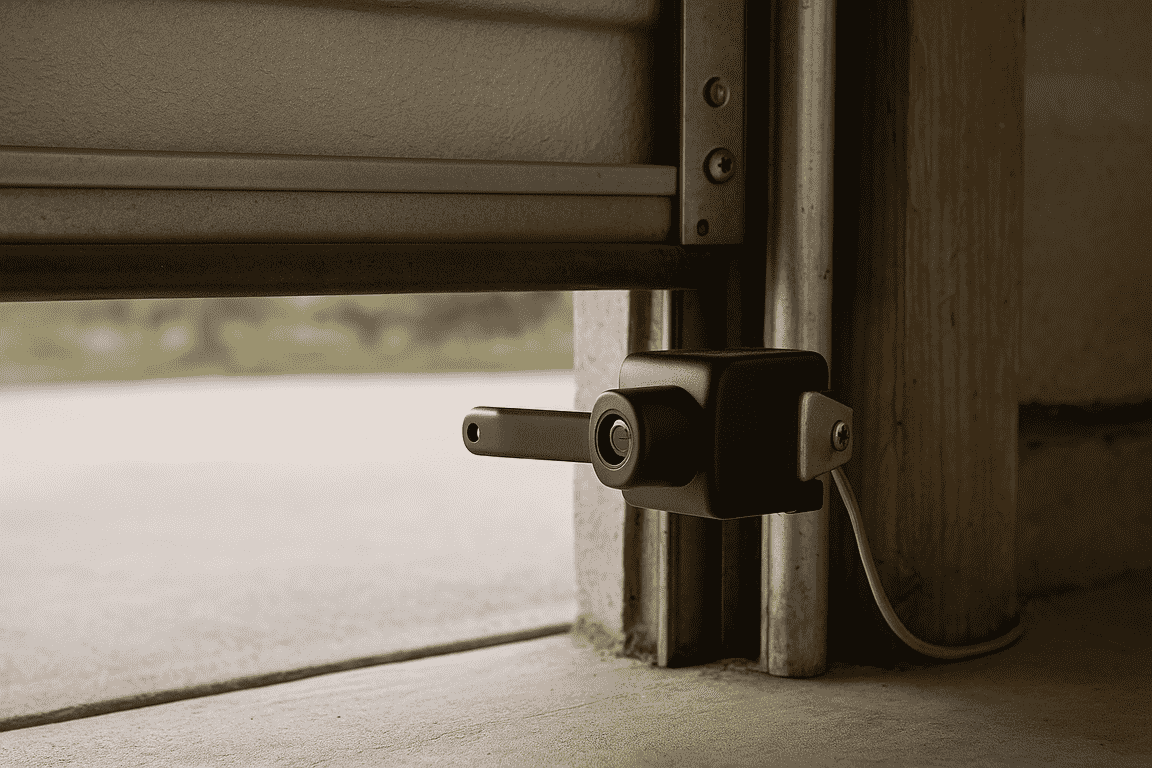By using our website, you agree to the use of cookies as described in our Cookie Policy
How to Quiet a Noisy Garage Door Without Replacing It
Noisy garage doors don't need to stay that way. The fix is often basic - a loose bolt needs tightening, moving parts need oil, or a roller needs fixing. You rarely need to buy a whole new door. Just check the spots where parts meet and move, and you'll get smooth, quiet opening and closing.
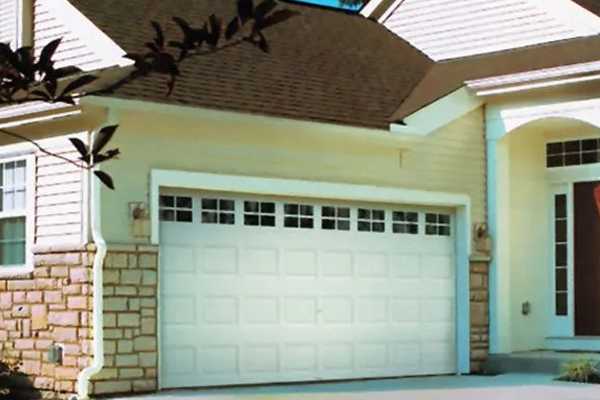
Where the Noise Starts
Open a garage door and listen. Metal rollers scrape along the track. Chains slap. Springs groan. Hinges creak. Each sound comes from a part that’s wearing out, out of alignment, or just plain dry. Here’s what usually causes the racket:
- Rollers grinding against the track
- Chains or belts slapping in the opener
- Springs losing their snap
- Tracks bent or out of line
- Hinges rusted or stiff
- Weather stripping flapping or vibrating
Every one of these issues can be fixed. Most don’t require new parts. They need the right maintenance, a few tools, and a little time. Garage door maintenance isn’t complicated, but it has to be done right. Skip it, and the noise gets worse. Stay on top of it, and the door stays quiet.
What Regular Maintenance Does
Neglect is the enemy of a quiet garage door. Dust builds up. Lubrication dries out. Bolts work loose. The result? A door that sounds like it’s falling apart every time you use it. Regular upkeep stops this before it starts. Here’s what works:
- Lubricate all moving metal parts: rollers, hinges, springs, and bearings
- Tighten every bolt, nut, and bracket along the track and door panels
- Check the opener chain or belt for slack and adjust as needed
- Inspect weather stripping for tears or gaps that cause vibration
Use a silicone-based lubricant. Skip the grease: dust sticks to it and makes things worse. Focus on the garage door springs and roller bearings. Lubrication alone can cut most door noise by more than half. Don’t forget the hinges. Dry hinges squeak and pop with every movement.
Spotting Hardware Problems
Loose hardware is a top offender. Even a single loose bolt can make the whole door rattle. Go over every fastener with a wrench. Don’t just check the obvious ones: look at the brackets that hold the track to the wall and ceiling. Miss Miss one, and the noise stays. Our residential door professionals recommend a monthly check. It takes minutes and keeps the door running smooth.
- Listen for rattling or banging as the door moves
- Feel for vibration in the panels or track
- Look for shiny spots where metal parts rub together
Find a loose part? Tighten it. Still noisy? Move on to the next step.
When Lubrication Isn’t Enough
Some noises don’t go away with basic maintenance. That’s a sign of deeper trouble. Worn rollers make a grinding or screeching sound. Bent tracks cause the door to jerk and bang. Hinges that have rusted through pop and snap every time the door moves. These problems need more than a wrench and a can of lube.
Replacing rollers or hinges isn’t a job for trial and error. The wrong part or a bad fit can make things worse. Track alignment takes precision. Even a small bend throws the whole system off. For these repairs, professional help makes sense. When you trust our garage door installation team, you get the assurance that every part fits and moves as it should. The result? A door that opens and closes quietly, every time.
When to Call for Professional Help
Pay attention to certain garage door sounds - they tell you what's wrong. When you hear metal scraping against metal, a roller or hinge is failing. Sharp, loud bangs mean a spring is losing strength or has broken. If your door moves crookedly or stops moving, don't push it. You'll only make things worse and might get hurt.
- Grinding that doesn’t stop after lubrication
- Bangs or pops that shake the whole door
- Door jerking, sticking, or moving unevenly
- Visible damage to springs, rollers, or tracks
Don't mess with garage door repairs yourself. These systems pack serious force - the springs alone can cause major injury. The metal tracks need exact positioning. One small mistake leads to costly fixes or hospital visits. That's why you need garage door repair pros. We bring the right equipment and know-how to fix it safely, the first time.
What a Quiet Door Feels Like
After a proper tune-up, the difference is obvious. The door glides up and down with a low hum. No rattles. No screeches. No banging panels. You don’t have to brace yourself every time you hit the opener. The whole system feels solid and reliable. That’s what regular maintenance and smart repairs deliver.
- Rollers move smoothly in the track
- Springs stretch and contract without noise
- Panels stay tight, with no flex or vibration
- Weather stripping seals out wind and keeps the door steady
A smooth, quiet garage door means all parts work together perfectly. When everything moves right, you get fewer repairs, less damage to components, and a door that keeps working year after year.
Get Professional Garage Door Help Today
Contact Anderson Door Company at 586-791-2369 or schedule service online to restore quiet, smooth operation to your garage door system.
‹ Back

